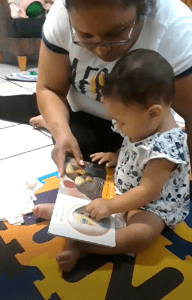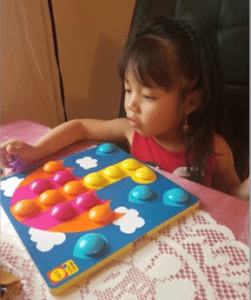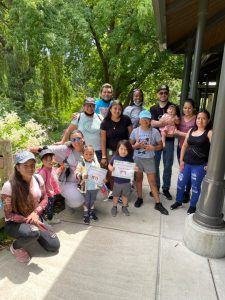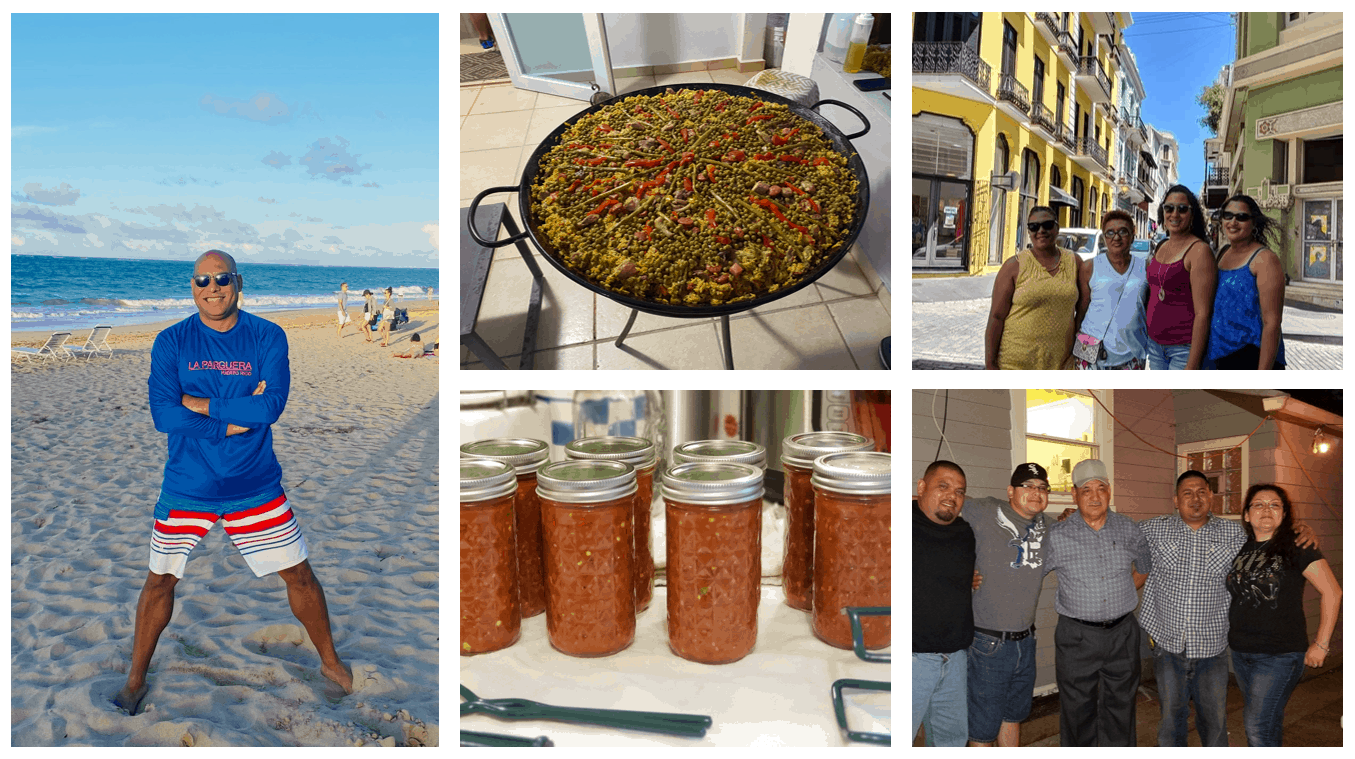Nurturing others comes naturally for Victoria Barajas, who has found her true calling as a home visitor. After spending 10 years working at an early learning school, she was drawn to home visiting’s ability to create supports for the whole family that build a strong foundation for years to come.
The “Yes Moment”
Home visitors like Victoria help parents engage in their children’s education and get a better understanding of developmental milestones. “A lot of parents are not aware that what they bring to the table impacts their child’s development,” she shares. “As parents get more involved, they’ll tell me things like, ‘Wow, I didn’t know my child could do this. I thought they were too small,’ and it makes them more eager to be involved.”

This builds a strong foundation for future learning. “Having the parent involved shows the child that their parent took the time to be with them and interact with them, so they feel confident enough to detach and interact with other adults,” she explains. When the child gets older, they’re more receptive to what they’re learning, are better able to problem solve and have increased communication skills.
For Victoria, the “yes moment” comes when parents begin to follow their child’s curiosity and development. “We can’t choose their interests for them — if we don’t follow their curiosity, they won’t want to learn anything else,” she says. “I know it clicks when parents say, ‘Wait, I know we planned for this because that’s what they were interested in last week but they’re not interested in that anymore. Can we do this instead?’”
Meeting Families Where They’re At
As a Spanish-speaking Latina, Victoria knows being part of a diverse home visiting workforce is essential to fostering intimate relationships with her families.
“You need to be empathetic and meet parents and families where they are at. It’s beneficial that I can connect with families in their language. It’s where they feel more confident in speaking and interacting with me because that is how they’re communicating with their child,” Victoria explains.
It is important to consider each family’s home culture and how they interact with their child. “Even among Latinos, Mexicans speak different dialects and Ecuadorians have different vocabulary so you can’t go into the home assuming everyone speaks the same type of Spanish.”
By building relationships with every adult in the home, including grandparents, Victoria builds a foundation of professionalism, empathy and cultural sensitivity. “When you do that, the adults give you so much more to work with and are open to receiving whatever you bring to their home,” she shares.

Supporting the Whole Family
In addition to helping parents build strong relationships with their children, home visitors connect families to the resources and supports in the community they need to thrive. Particularly during times of high stress, a parent may feel unable to give their full self to supporting their child. That’s why home visiting provides comprehensive supports to families. It’s only when a parent feels 100% that they can be fully present.
“I tell families that I’m here to work with the family as a whole, not just the child,” she shares. “If parents are focused on what they’re going through financially or dealing with depression, I know only supporting children’s development isn’t going to help. Once we address families’ basic needs and supports, we start to see an increase in parent interaction.”
During the pandemic, Victoria helped her families access basic needs like diapers, baby wipes, formula, cleaning supplies and gift cards to purchase additional items. “All my families said they really appreciated it, especially those who lost their jobs. It kept them afloat,” she recalls.
One of the biggest challenges during COVID was helping families with technology needs. Victoria helped her families navigate a variety of issues, from lacking access to a laptop or tablet to not having enough data to download the new apps required for virtual meetings. When some of her parents struggled to download mobile apps because the instructions were in English, she shared screenshots and instructions in Spanish.
As the pandemic ebbs and Victoria is able to resume in-person visits, she continues to prioritize each family’s perspective and comfort zone. “There are some families that are very relaxed and open to visitors and others that are very cautious as to their interaction with the rest of the world. I work with each individual family and meet them where they are.”
The Impact of Her Work

Now nearly 20 years into the work, Victoria remains passionate about being able to make a difference in children’s lives and help their parents understand why it’s important for them to be a part of their children’s development. Her reward is the pictures and text messages she receives from parents sharing a video of a first step, a photo from a birthday party, or an update from school.
“I got into this work for personal reasons, but working with families so closely and seeing the impact of my work is incredibly meaningful.”









